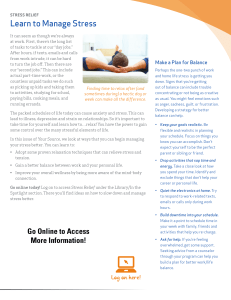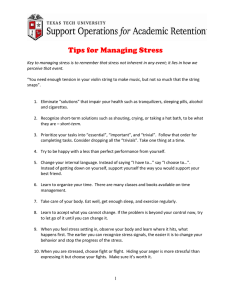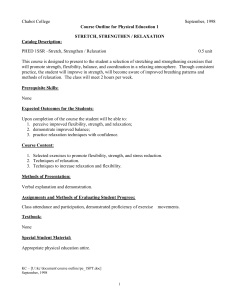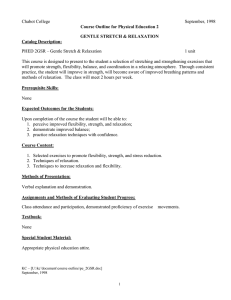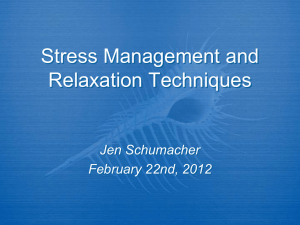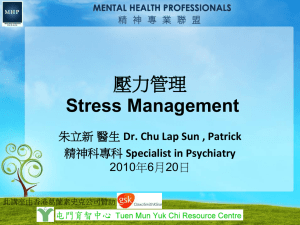Relaxation Training Helps Patients Put Mind Over Matter
advertisement
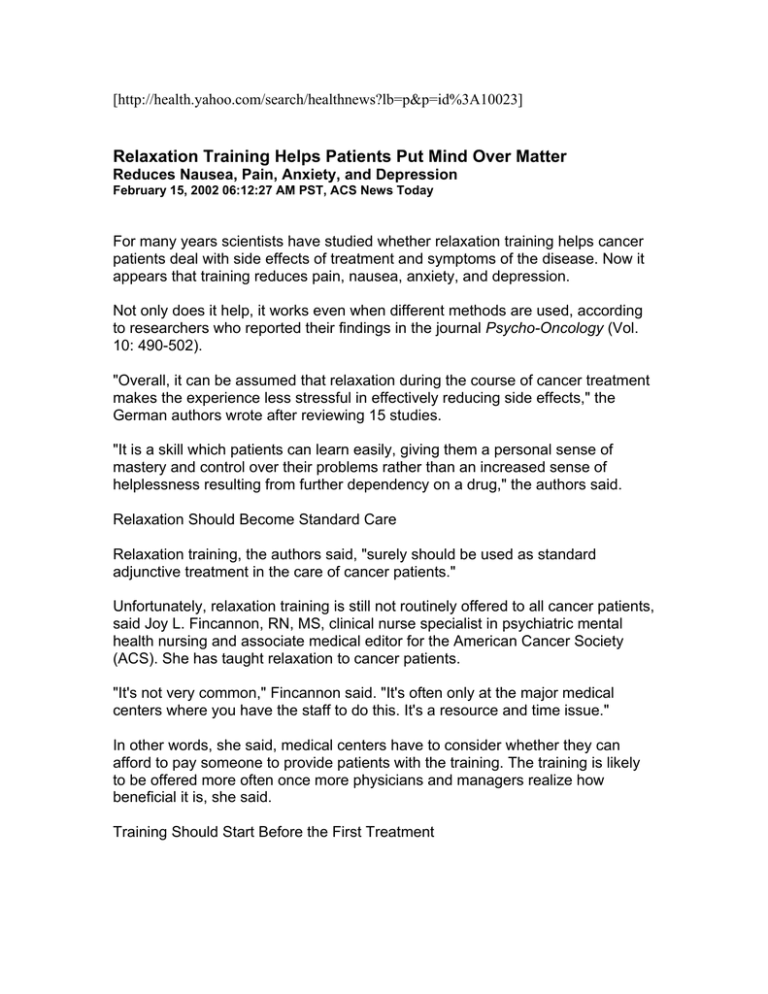
[http://health.yahoo.com/search/healthnews?lb=p&p=id%3A10023] Relaxation Training Helps Patients Put Mind Over Matter Reduces Nausea, Pain, Anxiety, and Depression February 15, 2002 06:12:27 AM PST, ACS News Today For many years scientists have studied whether relaxation training helps cancer patients deal with side effects of treatment and symptoms of the disease. Now it appears that training reduces pain, nausea, anxiety, and depression. Not only does it help, it works even when different methods are used, according to researchers who reported their findings in the journal Psycho-Oncology (Vol. 10: 490-502). "Overall, it can be assumed that relaxation during the course of cancer treatment makes the experience less stressful in effectively reducing side effects," the German authors wrote after reviewing 15 studies. "It is a skill which patients can learn easily, giving them a personal sense of mastery and control over their problems rather than an increased sense of helplessness resulting from further dependency on a drug," the authors said. Relaxation Should Become Standard Care Relaxation training, the authors said, "surely should be used as standard adjunctive treatment in the care of cancer patients." Unfortunately, relaxation training is still not routinely offered to all cancer patients, said Joy L. Fincannon, RN, MS, clinical nurse specialist in psychiatric mental health nursing and associate medical editor for the American Cancer Society (ACS). She has taught relaxation to cancer patients. "It's not very common," Fincannon said. "It's often only at the major medical centers where you have the staff to do this. It's a resource and time issue." In other words, she said, medical centers have to consider whether they can afford to pay someone to provide patients with the training. The training is likely to be offered more often once more physicians and managers realize how beneficial it is, she said. Training Should Start Before the First Treatment Studies such as those included in this report, Fincannon said, answered questions such as what type of training works best, and when the training is likely to be most effective. For example, the authors noted that the training is most successful if it is provided before the first medical treatment. Fincannon said she has observed this, as well. "If patients have a bad experience in the first chemotherapy treatment, they've tucked that into their brains as a bad thing," Fincannon said. "If you can get them before they've had that bad experience, they can avoid the bad association." The researchers also discovered that patients who spent a total of just two hours with a relaxation-training expert were successful using it on their own after that. Among the experts most likely to have received that training are psychologists, psychiatric nurses, nurses who are trained in hypnosis, and clinical social workers, she noted. Patients who aren't offered this training by their doctors can ask about it, or seek it out through professionals, Fincannon said. But the drawback is they will have to pay for it on their own, probably, unless their doctor can justify it as something insurance would cover. Patients Tense, then Relax One Muscle at a Time The researchers from Hamburg and Bochum in Germany, analyzed studies done by other scientists in the US, Sweden, and the United Kingdom. The studies looked at a combined total of 742 people, between 1981 and 1995. In most of the studies, the patients participated in "progressive muscle relaxation," or PMR. This method involves the patient first tensing, then relaxing muscles, focusing on one body part at a time, Fincannon said. For example, they might tense and then relax the face, then neck, then shoulders, moving on to the rest of the body. Other methods used in the studies, sometimes in combination with PMR, included guided imagery and hypnosis. "The consistency of the positive results obtained in the group of studies ? is remarkable," the authors wrote. They noted that patients greatly reduced nausea, pain, anxiety, depression, hostility, blood pressure, and pulse rate. This was achieved, they wrote, "despite wide variations in type of cancer, stage of disease, chemotherapy protocol, etc. This fact was especially noteworthy if one considers that the research was conducted by separate groups of investigators using different research methods." Fincannon has used several methods in teaching patients to relax depending upon their disease. For patients with leukemia, for example, muscle soreness may make the tensing part of PMR painful. With most of her patients, she would make audio tapes they could keep, using the tapes to guide them to relax during chemotherapy, or just to fall asleep at home. And the tapes can still be used when the patients are well. "This is a skill you can learn that you have for the rest of your life," she said, "no matter what situation you're in."
